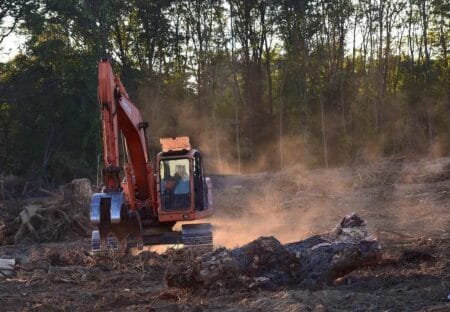Construction or surety bonds bring with them a specific set of risks that are not always well defined, which can land construction lenders in trouble if they are not careful.
 Jason Colodne, senior transaction partner and co-founder of Colbeck Capital Management, has seen how these off-balance sheet risks can play out over time. Recently, he took a closer look at what financial professionals can do to protect themselves.
Jason Colodne, senior transaction partner and co-founder of Colbeck Capital Management, has seen how these off-balance sheet risks can play out over time. Recently, he took a closer look at what financial professionals can do to protect themselves.
Types of Construction Bonds
To start with, there are three common types of construction bonds:
- Bid: This bond guarantees the lender that the contractor will sign a contract tied to a qualifying bid.
- Performance: This bond guarantees that the work will be completed even in the case of default. If this occurs, the surety picks up the slack to ensure the project is completed according to the original terms of the contract.
- Payment: This bond protects the project owner if their contractor fails to pay any vendors or suppliers they use. It eliminates the possibility of liens placed on the owner for the project in the event of the contractor’s failure.
In most of these instances, the surety is usually an insurance company, but it doesn’t have to be. A surety can be any legitimate third party willing to take responsibility for both verifying the contractor’s reputation and ensuring the project is finished according to standards originally agreed upon.
In turn, the surety has to do its due diligence to underwrite any commercial construction companies they work with as well as the lenders they partner with. The goal is for the surety to have a thorough understanding of everything from performance history to quality control to financial management. If the lender or construction company has too many red flags, the surety may refuse the project.
What Commercial Lenders Should Know
Lenders will most likely loan the total value of the underlying contract. However, construction can be impacted a variety of factors including fluctuating markets and poor weather. If a lender fails to notice changes to the value or cash flow of the project, it can have a serious impact on the bond.
In the case of a default with a performance bond, the lender largely relies on the surety company. Considering that most lenders use asset-based formulas to decide how much to advance, a downside scenario could lead to a serious loss of collateral for the construction company and much larger doubts about the resources available to complete the project as promised.
For example, imagine that a commercial construction contractor’s team walks off the job, and the company is unable to replace them. In this case, the surety becomes the contractor to make sure the project is finished. The surety holds the power with rights above and beyond the lender. If the lender disapproves of fund management, the surety still has the final say.
Colodne noted that commercial lenders should understand not just the contract scope but also the relationship the surety shares with the construction company. Lenders must also evaluate how a downside scenario could affect the contract, cash flow, or other assets. They should also keep track of contract changes to eliminate surprises later in the process.
Assessing Your Risks: Jason Colodne’s Advice to Commercial Lenders
Construction lending can be an undoubtedly profitable venture, but there are inherent risks that are relatively easy to overlook. Unfortunately, the extent of the issues only make themselves known in a downside scenario. While lenders cannot eliminate the risk of off-balance sheets entirely, there are ways to recognize potential problems before they occur and to either plan for them or avoid them altogether.
About Jason Colodne
Jason Colodne has more than 20 years of investment experience and formerly served as the head of Proprietary Distressed Investing and the Hybrid Lending Group in the Fixed Income Currencies and Commodities Division at Goldman Sachs. He also served as managing director and head of the Strategic Finance Division at Morgan Stanley. Colodne currently holds board seats on a variety of portfolio companies and is a member of the Young Professionals Organization. He also supports a number of charities including the Children’s Tumor Foundation.
About Colbeck Capital Management
Colbeck Capital Management was founded in 2009 by Jason Colodne and Jason Beckman with a focus on strategic loans for transitioning companies unable to secure traditional capital. With offices in New York and Los Angeles.







